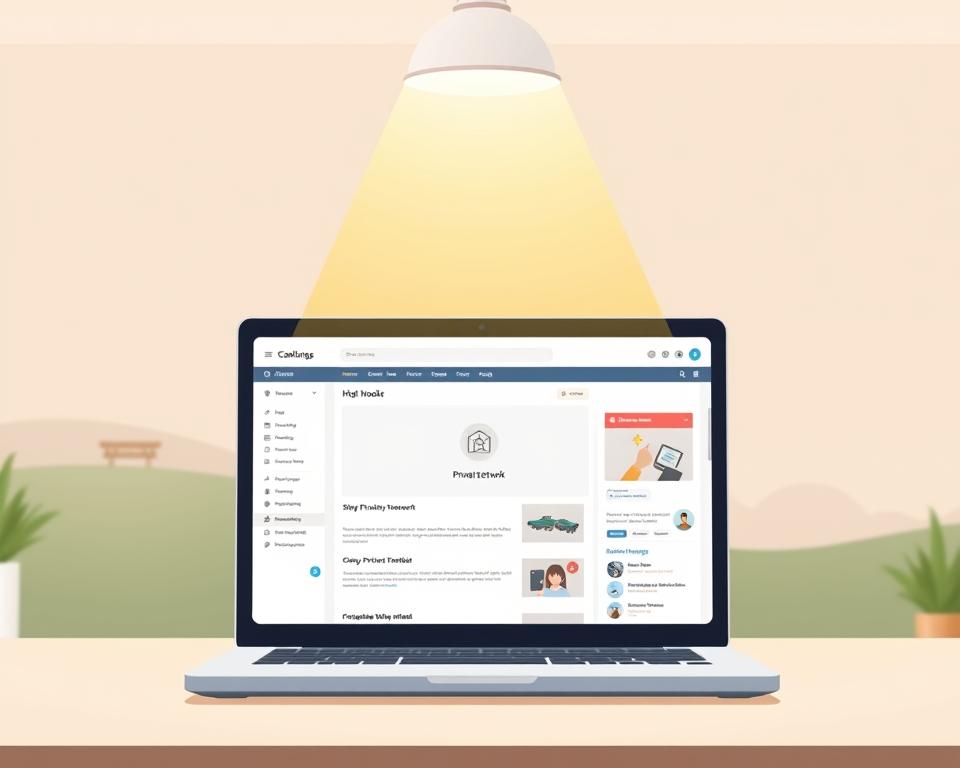Decoding PBN Link Strategies
Did you know nearly 60% of SEO professionals have used private blog network links? A PBN’s main draw lies in how it can elevate a domain’s credibility. Consequently, search engines may reward you with improved rankings. Yet, what truly defines a Private Blog Network in the SEO world? It might seem like a quick way to climb the ranks, yet using PBN SEO services poses significant risks. You risk incurring serious sanctions from Google. We’ll unpack what blogger network sites are and why so many SEOs can’t resist them.
PBN Explained
A PBN comprises multiple sites set up to generate private blog network backlinks. This method aims to increase search engine visibility by passing link equity from these sites to the primary one. By leveraging expired domains with lingering trust, PBNs present a convincing front to crawlers.
What drives a PBN is simple. Site owners use them to improve their online presence. They achieve this through:
- Securing high-value links that elevate SERP standings.
- Dictating anchor text and placement for optimal relevance.
- Fostering a web of sites that exchange links in a natural-looking manner.

Behind the Scenes of PBN Links
They function by simulating organic endorsements through private blog network backlinks. When a pbn site links to another, it artificially increases that site’s perceived value and credibility.
It centers on selecting keyword-rich anchor text across a controlled array of blogs. While this method can quickly improve rankings, it poses significant risks.
Backlinks should be cloaked within credible, value-driven articles to avoid detection.
PBN Benefits
PBNs provide clear perks for link-building strategists. One of the primary benefits is the immediate control over backlinks.
PBN expired domains, often rich in authority, provide a unique opportunity to create strong backlinks.
Further, the flexibility found in PBNs allows for precise targeting of keyword-rich anchor texts.
Hazards of Using PBNs
But these benefits come with major downsides. A major concern is the risk of Google penalizing websites that use these networks.
Why Some SEOs Choose PBNs over Traditional Link Building
In the competitive world of SEO, professionals often face challenges with traditional link-building strategies. PBNs offer a unique advantage: a sense of control over backlink strategies.
PBN Management Tips
Safeguard your network by following these protocols. Vet domains meticulously to avoid bad neighborhoods.
Spotting PBN Links
Regular backlink audits help unearth PBN footprints.
| Indicators of PBN Links | Description |
|---|---|
| Low-Quality Domains | Links from domains with poor authority or less than optimal rankings. |
| Irrelevant Content | Links embedded in content that does not match your site’s niche. |
| Suspicious Anchor Text | Repetitive or irrelevant anchor text patterns. |
| Thematic Similarity | Lack of a coherent theme among linking pages and domains. |
How to Disavow Private Blog Network Links
- Identify harmful PBN backlinks through thorough analysis.
- Create a disavow file correctly, listing specific URLs or domains to disavow.
- Upload the disavow file to Google Search Console.
Ethical Link Building Alternatives
High-quality content and influencer collaborations also drive organic links.
PBN Misconceptions
Private Blog Networks (PBNs) are often misunderstood, affecting both new and seasoned SEOs.
PBN Outlook
| Factor | PBNs | Future SEO Practices |
|---|---|---|
| Content Quality | Low emphasis on genuine content | High emphasis on high-quality, valuable content |
| Risk Factor | High risk of penalties | Lower risk with authentic practices |
| User Engagement | Limited engagement | Enhanced user interaction and loyalty |
| Sustainability | Unsustainable in the long term | Focus on sustainable growth |
To Conclude
Yet, the ethical and practical risks are substantial.

